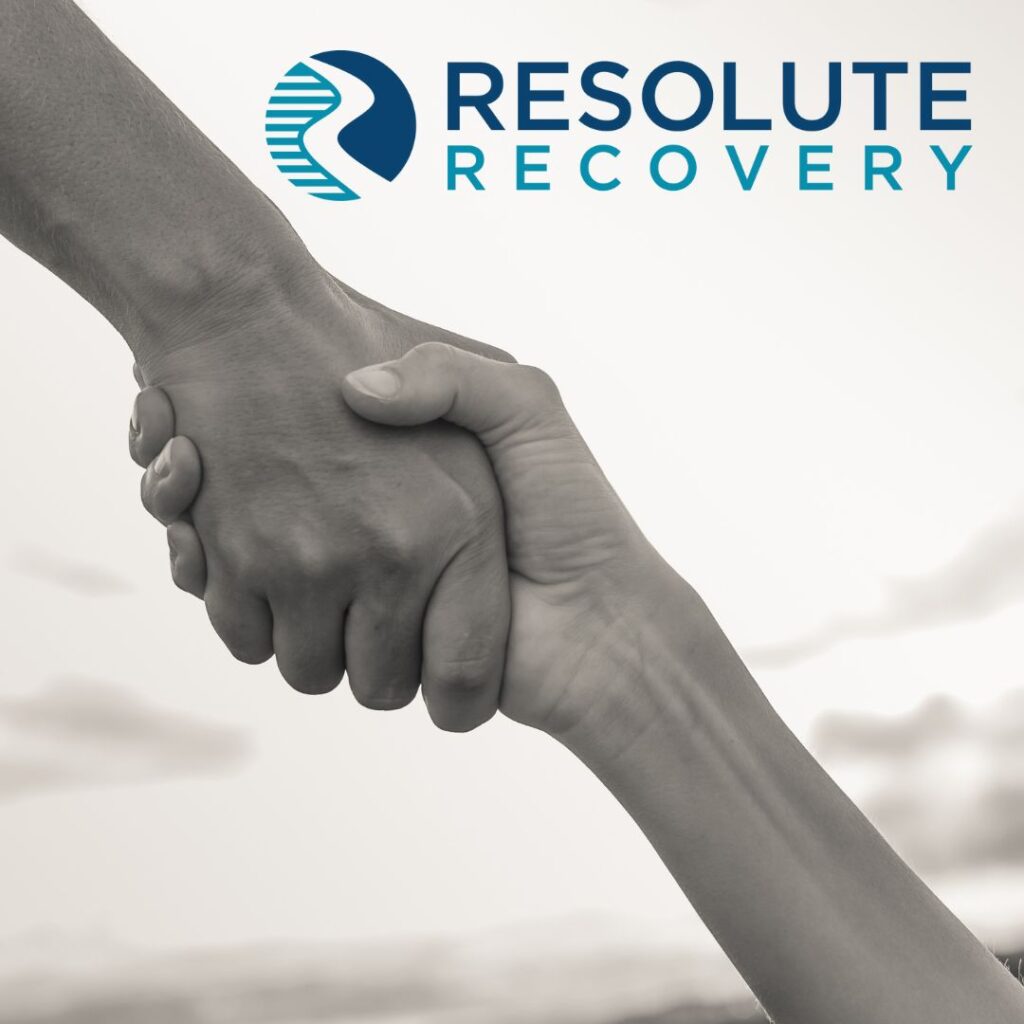Recognizing the Relapse Process

Many people think of relapse as a sudden decision to start using substances again. But in reality, it happens gradually through different stages, often over weeks or months before actual substance use begins.
Understanding these stages can help you identify warning signs in your loved one:
- Emotional Relapse: The earliest stage where emotions and behaviors shift, but thoughts of using haven’t surfaced
- Mental Relapse: Internal struggle between wanting to maintain recovery and considering substance use
- Physical Relapse: The actual return to substance use
Think of relapse like a storm building up. The emotional stage represents distant clouds forming, the mental stage brings thunder and lightning, while physical relapse is the downpour. Just as you can prepare for a storm by watching weather patterns, you can prevent relapse by recognizing early signs.
Why Early Recognition Matters
- Intervention becomes more challenging at each progressive stage
- Emotional and mental stages offer opportunities to prevent substance use
- Success rates for preventing relapse are highest during early stages
- Your loved one may not recognize these signs themselves
By learning to spot early warning signs, you can help your loved one maintain their recovery journey before physical relapse occurs.
Early Warning Signs of Emotional Relapse
Emotional relapse signs often surface subtly, making them challenging to identify without careful observation. Your loved one might display sudden mood swings, shifting between irritability and withdrawal without apparent cause. These emotional fluctuations can manifest as:
- Avoiding social gatherings they previously enjoyed
- Sleeping excessively or experiencing insomnia
- Skipping meals or developing irregular eating patterns
- Isolating from family and support networks
Recovery routines start slipping away during emotional relapse. Watch for these behavioral changes:
- Missing scheduled support group meetings
- Neglecting established coping strategies
- Dropping healthy habits like exercise or meditation
- Canceling therapy appointments
Mental health symptoms intensify during this stage. You might notice:
- Increased anxiety or panic attacks
- Signs of depression like low energy or hopelessness
- Difficulty managing stress
- Emotional outbursts or unexplained crying
These warning signs don’t indicate immediate substance use but signal potential vulnerability. Your loved one might not recognize these changes themselves, making external support crucial during this phase.
Internal Struggles to Watch For in Mental Relapse
Mental relapse creates an intense internal battle in your loved one’s mind. You might notice them:
- Bargaining with themselves about controlled substance use (“I can handle just one drink“)
- Minimizing past consequences (“It wasn’t really that bad when I used“)
- Glamorizing previous use while forgetting negative experiences
- Planning hypothetical use scenarios in detail
The mind begins crafting elaborate justifications:
- “I’ve been clean for months – I’m stronger now“
- “My life is more stable – I can control it this time“
- “Everyone else can drink/use casually“
Watch for signs of your loved one dwelling on memories of substance use or expressing curiosity about using again. They might start testing boundaries, like visiting places where substances are present “just to prove they can resist.”
These thought patterns often intensify gradually. Your loved one might experience increasingly frequent and intense cravings, accompanied by obsessive thoughts about obtaining and using substances. This stage often leads to a critical point where the individual may feel overwhelmed by these thoughts, making it essential to look out for professional help. It’s important to note that mental health issues often accompany substance use disorders, complicating the recovery process further.
When Substance Use Resumes: Understanding Physical Relapse
Physical relapse marks the actual return to substance use after a period of sobriety. This stage represents the visible manifestation of the internal struggles that often go unnoticed during emotional and mental relapse phases.
Common patterns of physical relapse include:
- A single “slip” that turns into regular use
- Returning to previous substance use patterns
- Attempting to control or limit consumption
- Hiding or denying the resumed substance use
The path to physical relapse typically develops quietly. You might notice your loved one:
- Making excuses to visit places where substances are available
- Suddenly having unexplained financial needs
- Displaying physical signs like bloodshot eyes or slurred speech
- Exhibiting dramatic behavioral changes
Physical relapse rarely happens spontaneously – it’s the culmination of missed warning signs and unaddressed struggles. Understanding this progression helps identify critical intervention points before substance use resumes.
Is Your Loved One Relapsing? Signs to Look Out For
Watching a loved one struggle with potential relapse triggers deep concern. Specific behavioral changes often signal growing risks:
- Glorifying Past Use: Your loved one might start sharing “fun” stories about their using days or downplaying negative consequences they previously acknowledged
- Changes in Language: Listen for shifts from “I’m glad I quit” to “I could handle just one”
- Return to Old Haunts: Sudden interest in visiting places associated with previous substance use
- Reconnecting with Using Friends: Reaching out to old contacts who are still actively using
- Defensive Responses: Becoming agitated when discussing recovery or substance use
- Secretive Behavior: Unexplained absences or being evasive about their whereabouts
- Financial Changes: Unexplained spending or asking to borrow money
These warning signs, such as those outlined in this article about substance abuse in college, don’t guarantee relapse but deserve immediate attention. The earlier you identify these red flags, the better chance you have at helping your loved one stay on their recovery path. Early intervention, as suggested in this guide on recognizing the signs of substance abuse, can save lives.
What To Do If You Suspect a Relapse Is Imminent In Someone You Care About?
Swift action can make a critical difference when you notice relapse warning signs in someone you care about. Here’s how to take immediate, effective steps:
- Start a direct conversation – Express your concerns with specific examples of behaviors you’ve noticed. Use “I” statements like “I’ve noticed you’ve missed three recovery meetings this week”
- Listen without judgment – Create a safe space for your loved one to share their struggles. Ask open-ended questions about their feelings and current challenges
- Document behavioral changes – Keep track of concerning behaviors, missed appointments, or changes in routine. This information helps healthcare providers assess the situation accurately
- Contact their support network – Reach out to their sponsor, counselor, or trusted recovery friends who can provide additional support and perspective
- Have emergency numbers ready – Keep contact information for their treatment center, counselor, and crisis hotlines easily accessible
Remember: Your loved one might initially deny or minimize their struggles. Stay firm yet compassionate in your approach, focusing on their wellbeing rather than accusations or blame.
Supporting Someone At Risk of Relapse Effectively
Supporting a loved one at risk of relapse requires active involvement in their recovery journey. You can make a significant impact by:
- Maintaining regular check-ins with their sponsor
- Coordinating with their support group members
- Staying connected with their counselor or therapist
- Helping track their meeting attendance
Your loved one needs practical support to maintain their recovery routines. Here’s how you can help:
- Offer transportation to recovery meetings
- Join them in healthy activities like exercise or meditation
- Help create structured daily schedules
- Remind them of therapy appointments
- Support healthy eating and sleep habits
Remember to respect their independence while providing support. Your role is to encourage rather than control their recovery process. Create a supportive environment where they feel empowered to:
- Make positive choices
- Practice self-care routines
- Engage with their support network
- Maintain accountability
- Follow their treatment plan
Consider joining family support groups to learn effective ways to support your loved one while taking care of your own emotional needs. If professional help is needed, don’t hesitate to reach out for assistance.
Finding Local Resources for Relapse Support and Family Counseling

Professional support systems play a vital role during vulnerable periods when relapse risks are high. Local resources offer specialized guidance that can make the difference between continued recovery and relapse.
Key local resources to consider:
- Addiction counselors specializing in relapse prevention
- Family therapy programs focused on substance use disorders
- Support groups for both individuals in recovery and their families
- Crisis intervention services available 24/7
- Outpatient treatment programs
Family counseling proves particularly valuable during these challenging times. These sessions help:
- Rebuild trust between family members
- Develop effective communication strategies
- Create healthy boundaries
- Understand triggers and warning signs
- Learn practical coping mechanisms
Reach Out to Resolute for Help
At Resolute Recovery, we understand the complexities of addiction and relapse. Our experienced team provides:
- Personalized treatment approaches
- Evidence-based therapeutic interventions
- Family support programs
- Comprehensive relapse prevention strategies
- Ongoing recovery maintenance guidance
If you or a loved one is facing the risk of relapse, it’s crucial to seek help immediately. Our relapse support resources are designed to guide you through this difficult time, providing practical steps and guidance to help your loved one get back on track.
Understanding the underlying issues of addiction can also be beneficial. Our resource on the psychology of addiction offers valuable insights into the reasons behind addictive behaviors, which can be instrumental in managing them.
Additionally, building a strong sober support network is essential for lasting recovery. We provide guidance and resources to help you establish this network.
Don’t wait until relapse occurs to seek help. Contact us today for compassionate support and guidance. Our dedicated team will work with you to create a tailored plan that addresses your specific needs and circumstances.
Contact our team now to learn more about our programs and how we can support you and your loved one through this challenging time. Recovery is possible, and you don’t have to face this journey alone.




